General description
DNA endonuclease RBBP8 (UniProt: Q99708; also known CtBP-interacting protein, CtIP, Retinoblastoma-binding protein 8, RBBP-8, Retinoblastoma-interacting protein and myosin-like, RIM, Sporulation in the absence of SPO11 protein 2 homolog, SAE2) is encoded by the RBBP8 (also known as CTIP) gene (Gene ID: 5932) in human. RBBP-8 is an endonuclease that cooperates with the MRE11-RAD50-NBN (MRN) complex in processing meiotic and mitotic double-strand breaks (DSBs) by ensuring both resection and intrachromosomal association of the broken ends. RBBP8 is phosphorylated upon DNA damage (at Thr859) by ATR and this phosphorylated form binds to chromatin to initiate resection. The non-phosphorylated form does not bind to chromatin. It is reported that ATM activity is required for an early step in resection, leading to ATR activation, CtIP- phosphorylation, and accumulation of CtIP on chromatin. RBBP8 functions downstream of the MRN complex and promotes ATR activation and its recruitment to DSBs in the S/G2 phase facilitating the generation of ssDNA. It is localized predominantly in the nucleus and interacts with CTBP, with the C-terminal (BRCT) domains of BRCA1, and with the retinoblastoma protein. By interacting with BCRA1 it modulates transcriptional regulation, DNA repair, and cell cycle checkpoint control. Mutations in RBBP8 gene are known to cause Seckel syndrome 2, an autosomal recessive disorder characterized by proportionate dwarfism of prenatal onset associated with low birth weight, growth retardation, severe microcephaly, and mental retardation.
Specificity
Clone 11-1 specifically detects CtBP-interacting protein in human tonsils and pancreas.
Application
Anti-CtIP Antibody, clone 11-1, Cat. No. MABE1072, is a highly specific mouse monoclonal antibody that targets CtIP and has been used in Immunodepletion, Immunohistochemistry (Paraffin), Immunoaffinity Purification, and Western Blotting.
Immunohistochemistry Analysis: A 1:50 dilution from a representative lot detected CtIP in normal human tonsil and human pancreatic cancer tissue.
Western Blotting Analysis: A representative lot detected CtIP in Western Blotting applications (Peterson, S.E., et. al. (2011). J Cell Biol. 194(5):705-20; Peterson, S.E., et. al. (2013). Mol Cell. 49(4):657-67).
Immunodepletion Analysis: A representative lot detected CtIP in Immunodepletion applications (Peterson, S.E., et. al. (2011). J Cell Biol. 194(5):705-20; Peterson, S.E., et. al. (2013). Mol Cell. 49(4):657-67).
Immunoaffinity Purification Analysis: A representative lot detected CtIP in Immunoaffinity Purification applications (Peterson, S.E., et. al. (2011). J Cell Biol. 194(5):705-20; Peterson, S.E., et. al. (2013). Mol Cell. 49(4):657-67).
Quality
Evaluated by Immunohistochemistry in human tonsil tissue.
Immunohistochemistry Analysis: A 1:50 dilution of this antibody detected CtIP in human tonsil tissue.
Target description
~120 kDa observed; 101.94 kDa calculated.
Physical form
Format: Purified
Other Notes
Concentration: Please refer to lot specific datasheet.
- UPC:
- 51472500
- Condition:
- New
- Availability:
- 3-5 Days
- Weight:
- 1.00 Ounces
- HazmatClass:
- No
- MPN:
- MABE1072












